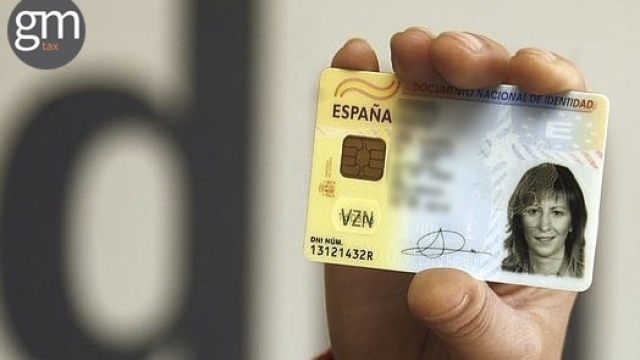If you’re considering living or working in Spain, chances are you’ve come across the term "NIE Number." But what exactly is this NIE Number, and why is it so important? Well, let’s find out.
The NIE Number, or Número de Identificación de Extranjero, is a unique identification number issued by the Spanish authorities to non-Spanish residents. It serves as a crucial document for various administrative and legal processes in the country. Whether you’re planning to open a bank account, get a job, buy a property, or even study in Spain, having a NIE Number is essential.
At first glance, the process may seem daunting, but fear not! This article aims to serve as a comprehensive guide, providing you with all the necessary information to obtain your NIE Number in Spain. From the basic requirements to the step-by-step application process, we’ll walk you through the entire journey, ensuring that you’re well-prepared to unlock the opportunities that await you in this beautiful country. So, let’s dive in and demystify the world of NIE Numbers in Spain.
What is an NIE Number in Spain?
The NIE Number, also known as the Número de Identificación de Extranjero, is a unique identification number assigned to non-Spanish residents in Spain. This number is essential for foreigners who plan to work, study, or engage in any legal activities within the country. It serves as a crucial identification document that facilitates various administrative and financial operations.
The NIE Number in Spain acts as your personal identification, similar to a Social Security Number in the United States. It is issued by the National Police and is required for a wide range of purposes, including opening a bank account, renting or buying properties, starting a business, applying for a job, paying taxes, or acquiring certain services and permits.
Having an NIE Number grants you the ability to fully immerse yourself in the Spanish society and take advantage of the numerous opportunities available to foreigners. Whether you are planning to live, work, study, or simply stay for an extended period in Spain, obtaining an NIE Number is a crucial step towards enjoying a seamless experience.
Why do you need an NIE Number in Spain?
If you’re planning to live, work, or study in Spain, obtaining an NIE (Número de Identificación de Extranjero) number is essential. This unique identification number is required for a multitude of reasons. Firstly, it allows you to legally reside in Spain for more than 90 days, ensuring that you comply with the country’s immigration laws.
Moreover, the NIE number is crucial for various administrative purposes. For instance, if you’re planning to open a bank account, buy property, or establish a business in Spain, the NIE number is a prerequisite. It also serves as an identification when dealing with government agencies, such as applying for social security, taxation, or signing up for healthcare services.
Additionally, having an NIE number enables you to access a wide range of opportunities in Spain. It allows you to seek employment or pursue educational opportunities, such as enrolling in universities or vocational schools. This identification number is also necessary for obtaining permits and licenses required for certain professions.
In summary, the NIE number holds significant importance for anyone planning to live, work, study, or conduct business in Spain. It ensures legal compliance, facilitates administrative processes, and unlocks numerous opportunities for individuals in this vibrant and culturally rich country.
How to obtain an NIE Number in Spain
To obtain an NIE Number in Spain, follow these simple steps:
Schedule an appointment: The first thing you need to do is to schedule an appointment with the Spanish immigration authorities. You can do this by contacting the nearest police station or foreigner’s office in your area. It’s important to note that getting an appointment might take some time due to high demand, so try to plan ahead.

Law firmGather the required documents: Before your appointment, make sure you have all the necessary documents ready. Typically, you will need your valid passport, a completed application form (which can be obtained online or at the police station), proof of legal entry into Spain, such as a visa or entry stamp, and any additional supporting documents specific to your situation, such as a job offer or proof of enrollment in a Spanish educational institution. It’s always a good idea to double-check the exact requirements with the authorities beforehand.
Attend the appointment: On the day of your appointment, make sure to arrive on time and bring all your documents with you. During the appointment, you will be required to submit your application form and present your supporting documents. The authorities may also ask you a few questions regarding the purpose of your stay in Spain. Once your application is approved, you will receive your NIE Number.
Remember, the NIE Number is a crucial identification number that allows you to conduct various legal activities in Spain, such as opening a bank account, registering for healthcare, or purchasing property. Therefore, it’s important to follow the necessary steps to obtain it correctly and legally.

